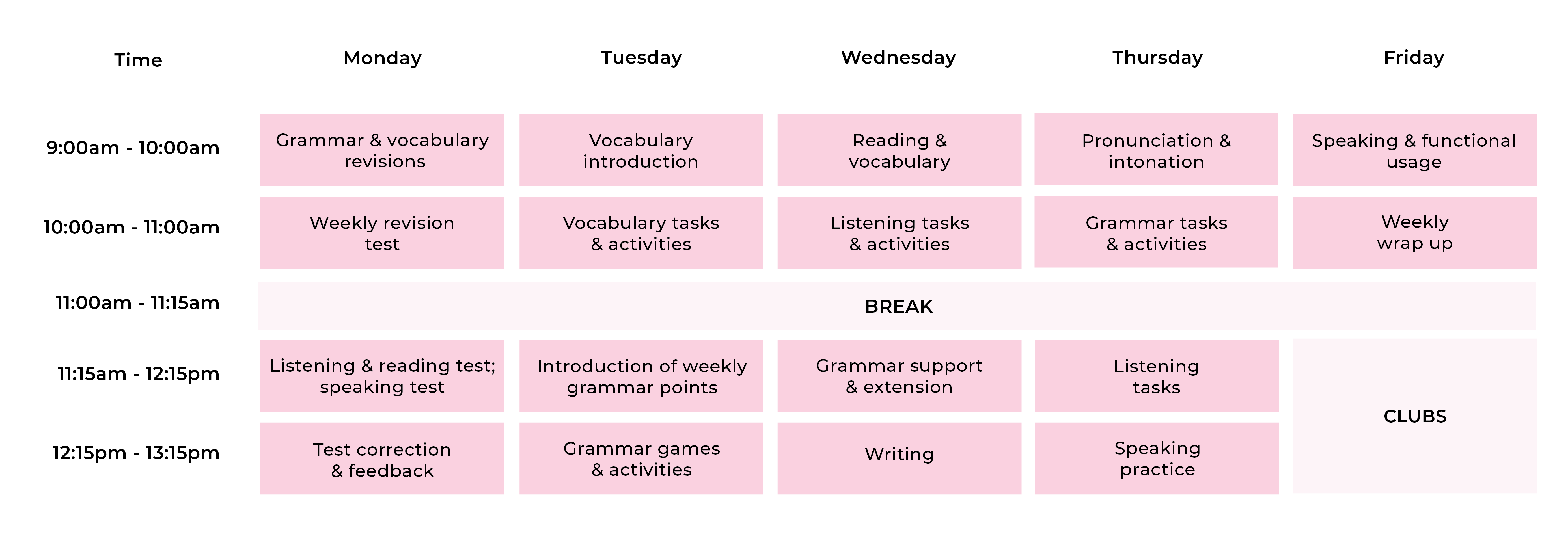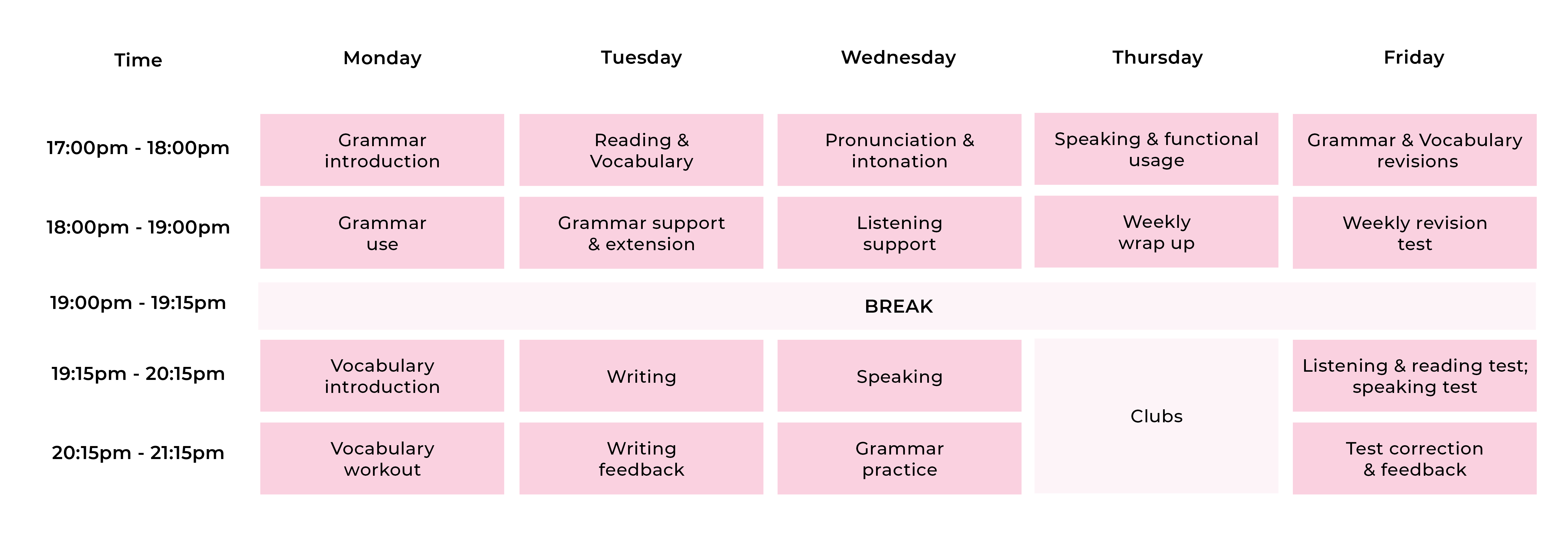General English
CRICOS Course Code: 115313E


Through years of industry observation and consultation with our most important partners, you (our students), we have perfected a course structure that ensures you not only achieve your desired English language results, but you have some fun along the way too!
Our English language courses are fun and dynamic, and our student-centred approach provides you with the ultimate learning experience.
Weekly![]()
![]() 1 – 60 Weeks
1 – 60 Weeks
![]() Face-to-Face
Face-to-Face
20 hrs / week
![]() Campus
Campus
Southport Central, Gold Coast
All English language students will be tested and placed in a class at their level upon arrival at Entrepreneur Education. We will determine the grades you receive in your course based on your progress.

This is the beginning of the English language journey for students at this level. Listening skills are limited to information about the individual and what directly affects them. Students at this level may only understand a few words in a sentence and will require repetition (and patience!) on behalf of the speaker to ensure comprehension. Gestures and body language are also key to meaning and understanding. Periods of listening longer than a minute or two may be beyond the student’s ability at this level.
At the Upper-Intermediate students have learned the core of the English language. From here, it is about adding bits and pieces, and continuous improvement on the way to becoming fluent. Many students finish their studies here as they feel they can now participate in society not just by merely surviving but by actually contributing through work, etc. In this level, students can now participate easily in conversations on a broad range of topics, including deeper, more complex topics. Gestures and body language are no longer necessary. Periods of listening are much longer –lectures, movies and TV programs, for example.
The Advanced level is all about “polishing” the students’ English. The hard work has mostly been done and now it’s a matter of adding those little pieces that bring the student closer to native-like proficiency. Students at this level can participate in conversations on any topic except those outside of their knowledge or experience, much like native speakers. Various accents may cause difficulty – Scottish or Welsh for example – as they would for native speakers, and slang or technical jargon will also cause confusion. Periods of listening are also similar to that of native speakers – movies and TV programs, lectures and presentations for example.


Please note; timetables are subject to change.

Please note; timetables are subject to change.